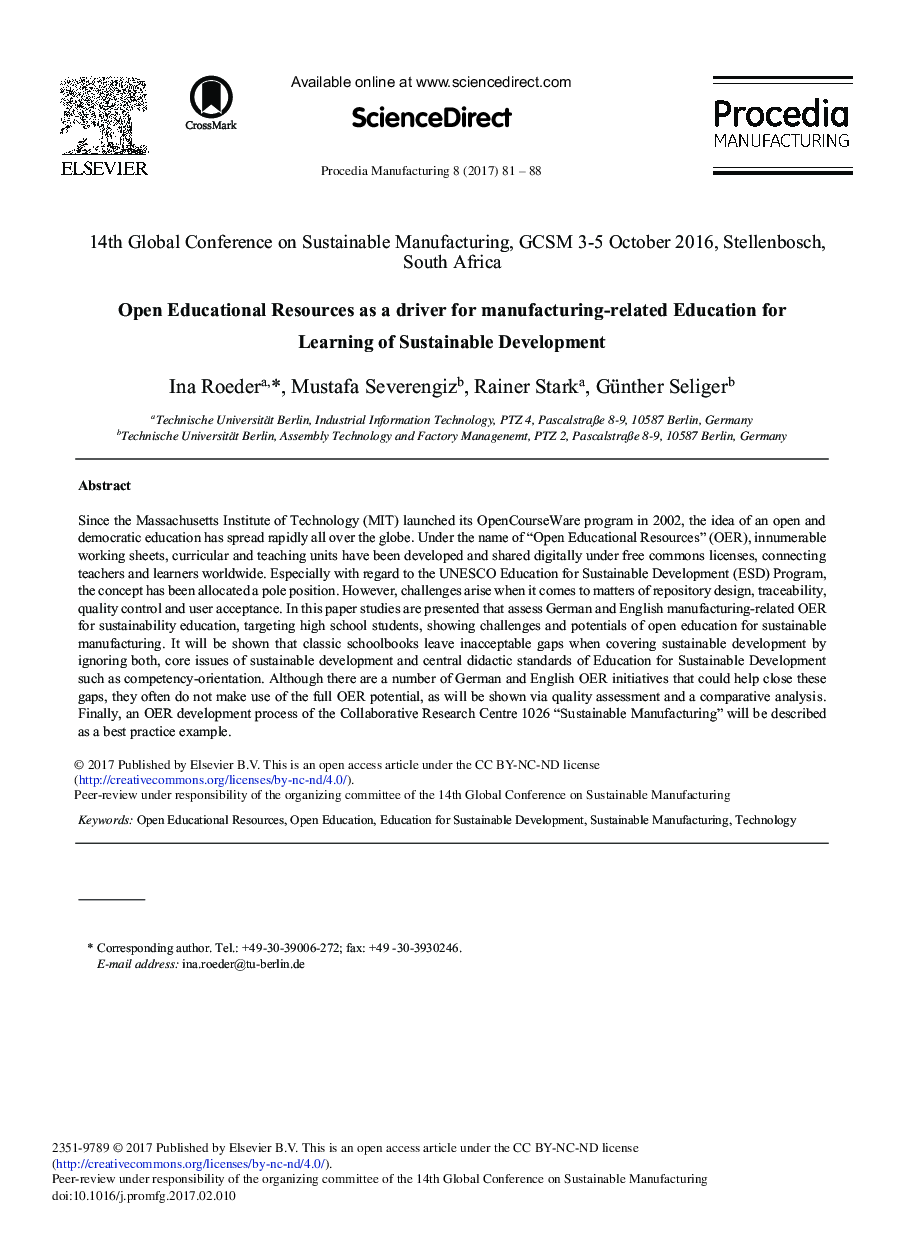| Article ID | Journal | Published Year | Pages | File Type |
|---|---|---|---|---|
| 5128909 | Procedia Manufacturing | 2017 | 8 Pages |
Since the Massachusetts Institute of Technology (MIT) launched its OpenCourseWare program in 2002, the idea of an open and democratic education has spread rapidly all over the globe. Under the name of “Open Educational Resources” (OER), innumerable working sheets, curricular and teaching units have been developed and shared digitally under free commons licenses, connecting teachers and learners worldwide. Especially with regard to the UNESCO Education for Sustainable Development (ESD) Program, the concept has been allocated a pole position. However, challenges arise when it comes to matters of repository design, traceability, quality control and user acceptance. In this paper studies are presented that assess German and English manufacturing-related OER for sustainability education, targeting high school students, showing challenges and potentials of open education for sustainable manufacturing. It will be shown that classic schoolbooks leave inacceptable gaps when covering sustainable development by ignoring both, core issues of sustainable development and central didactic standards of Education for Sustainable Development such as competency-orientation. Although there are a number of German and English OER initiatives that could help close these gaps, they often do not make use of the full OER potential, as will be shown via quality assessment and a comparative analysis. Finally, an OER development process of the Collaborative Research Centre 1026 “Sustainable Manufacturing” will be described as a best practice example.
